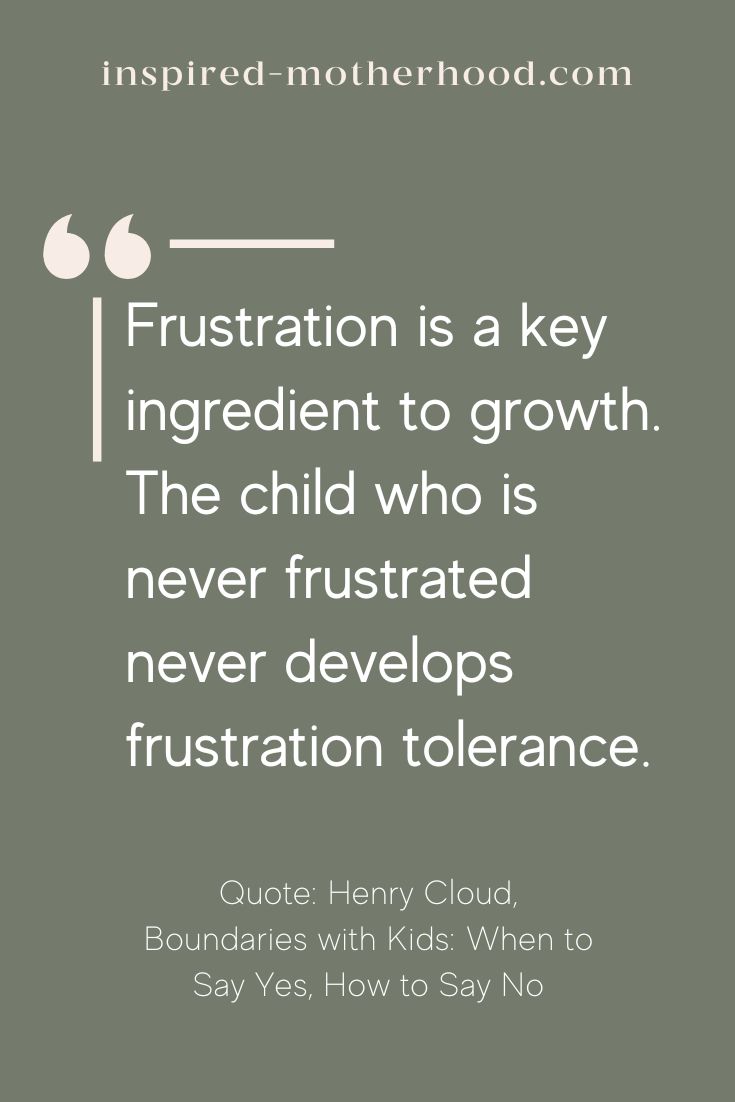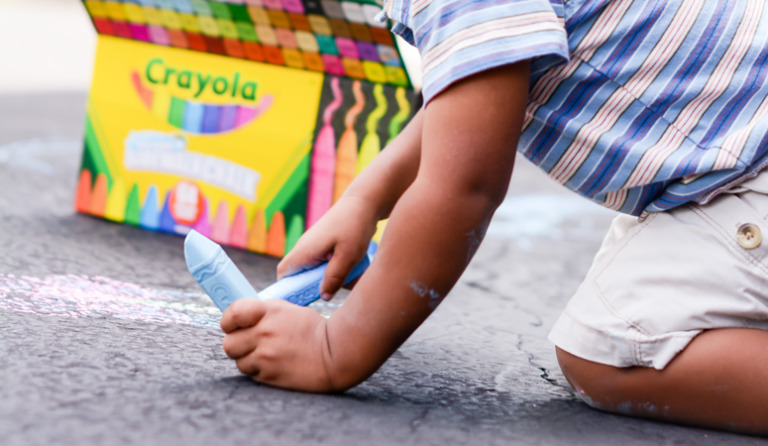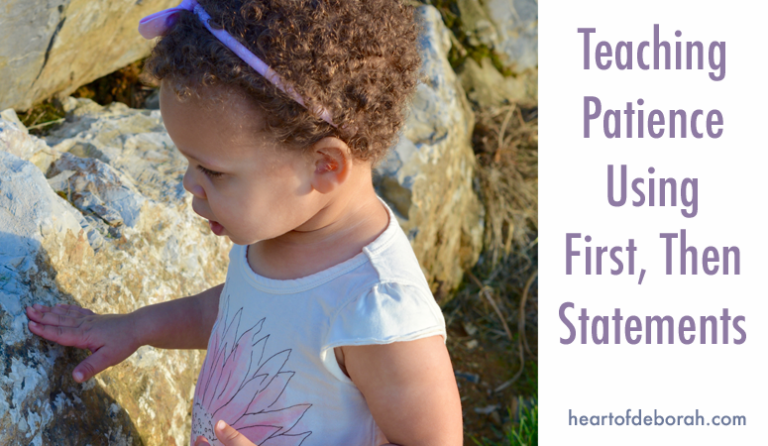3 Unusual But Effective Tricks for Raising Happy Children
3 Unusual But Effective Tricks for Raising Happy Children
A few years ago I started teaching human development at a local four-year university. One thing that surprised me the most was how the students reacted to the material. When we started talking about children’s social and emotional development, I could see it on their faces. Their faces asked out loud “how in the world am I going to get all this right as a parent?”
I did my best to offer the students hope. We won’t ALWAYS get it right. Even the best of parents makes mistakes in parenting. But there are things we CAN DO to raise happy children.
As parents, we can’t force our children into anything, but there are things we have control over. When we are intentional about these 3 things we can positively influence our child’s development.
Through my experience in parenthood and teaching human development, I’ve found 3 easy ways parents can raise respectful, empowered, joyful children.
3 Unusual But Effective Tricks to Raise Kids Who Thrive
RELATED: The Secret Way to Discipline Without Losing Your Temper
Key 1: Eat Dinner Together as a Family
I firmly believe all families should eat a meal together! But with busy sports schedules, work schedules and interfering technology family dinner time is becoming a thing of the past.
We must not let this happen! As a psychology professor, my students are always shocked when they hear the statistics about eating dinner together as a family.
What Does the Research Say?
In one study, sixth graders who regularly ate dinner with their parents compared to those who did so rarely were far less likely to display anxiety and depression, and poor grades (Based on Luthar & Latendresse, 2015).
In another study, children whose families ate regularly together were advanced in language and literacy development (Based on Snow & Beals, 2006). If I haven’t convinced you yet check out these 9 Scientifically Proven Reasons to Eat Dinner as a Family.
Eating together means no cell phones, no iPad at the table!!

It is so important to have time to talk and connect as a family unit. Family dinner time should be a priority until our children leave the nest. During this time, you learn to enjoy one another’s company and share the joys and pains of life together. It also brings unity to your family.
With small children, it may seem impossible to have a dinner where you all sit down and eat together. Keep at it and eventually, it will become routine.
Make it a Routine
We share our favorite part of the day at the dinner table. If we are sitting down and don’t get to this part yet our three-year-old often chimes in with “Daddy what was your favorite part!?”
The goal is when your kids become teenagers you already have this set in place and it’s a normal thing for your family. Communication is so important and family dinnertime is the perfect place for this to happen.
Key 2: Tell Your Child NO
This may seem odd, how does telling your child no make them happy? Just trust me and keep reading! In today’s culture, many parents are told ‘you shouldn’t say no to your child. Instead here are ways to say no without really saying no.’ What is this telling our children?
As parents, we don’t always feel up to dealing with the tantrums or the crying when we say no. Yet if we don’t pay attention to this now, we will pay for it later and so will our children.
Learning that you can’t always get your way is an invaluable life skill. Your children will actually thrive and be happier when you set boundaries as the parent.
When raising happy children will have to make tough decisions. It won’t always be easy, but that doesn’t mean you shouldn’t do it.
RELATED: The Secret Reason Your Toddler is Struggling to Follow Directions
“Frustration is a key ingredient to growth. The child who is never frustrated never develops frustration tolerance.” Henry Cloud, Boundaries with Kids: When to Say Yes, How to Say No

When you set boundaries and say no when your child pushes back, you develop your kid’s patience and perseverance. Though it may temporarily induce frustration, in the long run, your children will reap the rewards. Read more about creating enforceable limits for your kids here.
As you build your children’s character and shape their behavior you influence their future. When they face adversity later in life, they will hopefully have the tools to walk through it confidently.
It May Not Always Be Easy, But That is Okay. Keep Doing it!
The first few times you say no, your child may give you a lot of pushback. Stay strong.
Each time you set a firm boundary by saying no and stick to it, it will get easier. Your child will soon realize you say what you mean and you mean what you say.
It is important to remain consistent, but first you must figure out what are your boundaries.
Figure Out Your Boundaries
We must be intentional about this. Take time to talk about what you expect from your children and the values you want to impart in them with your spouse. Consider writing it down so when you are faced with a situation of conflict or confirmation you know how to respond.
Lastly, discipline usually isn’t fun for the parent or the child. I am reminded of Hebrews 12:11 (NIV):“No discipline seems pleasant at the time, but painful. Later on, however, it produces a harvest of righteousness and peace for those who have been trained by it.”
God often instructs and disciplines us as His children and we must do the same for our children. If we don’t do it when they are young, someone will do it for them later in life.
Key 3: Empathize with Your Children
There is one last key element and that is connecting meaningfully with your children. This includes empathizing with them when they are upset as well as learning their personal love language.
“Parents get into trouble when they don’t empathize with their child’s pain. They either overidentify with the pain of the child and give in, or they get angry at the child’s pain and go to war. Empathy and keeping the limit is the answer for both extremes.” Henry Cloud, Boundaries with Kids: When to Say Yes, How to Say No
As parents, we must pray for wisdom on how to instruct our children. This will allow us to find that perfect balance between setting a boundary and providing grace or compassion when our children are upset. It can’t be all one or the other. Parenting should be a mixture of grace and discipline to help raise happy children.
Finally Prayerfully Consider Your Children’s Love Languages
Have you heard of the five love languages?
The 5 love languages are: Words of affirmation, acts of service, receiving gifts, quality time and physical touch.
When you learn your child’s love language you can connect more meaningfully with him or her.
For the longest time, I wasn’t sure what my daughter’s love language was. I observed her behavior and tried to analyze what she craved most from us, but I couldn’t figure it out. My husband told me one day, that her love language is gifts!
It was so true. I didn’t see it at first because that isn’t one of my love languages, but once I realized it, it opened doors in our relationship. The way I respond to my daughter is very different than how I respond to my son.
Each child has different preferences and personalities. As parents we can discover these gifts through careful observation and prayer! This directs the activities we plan and the way we parent.
As a parent you have so much influence over your child’s life! What a privilege it is to positively impact the next generation.
What are your best parenting tips for raising happy children? I’d love to hear from you in the comments below!













Great article ! Thank you !